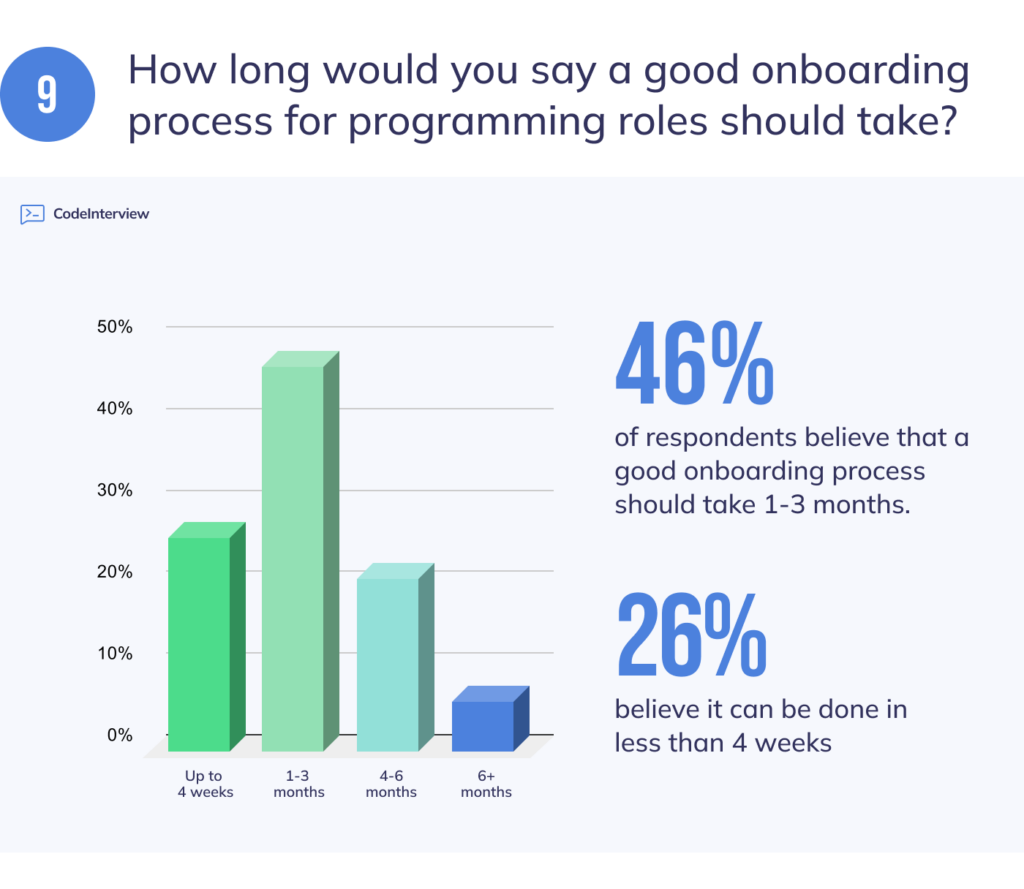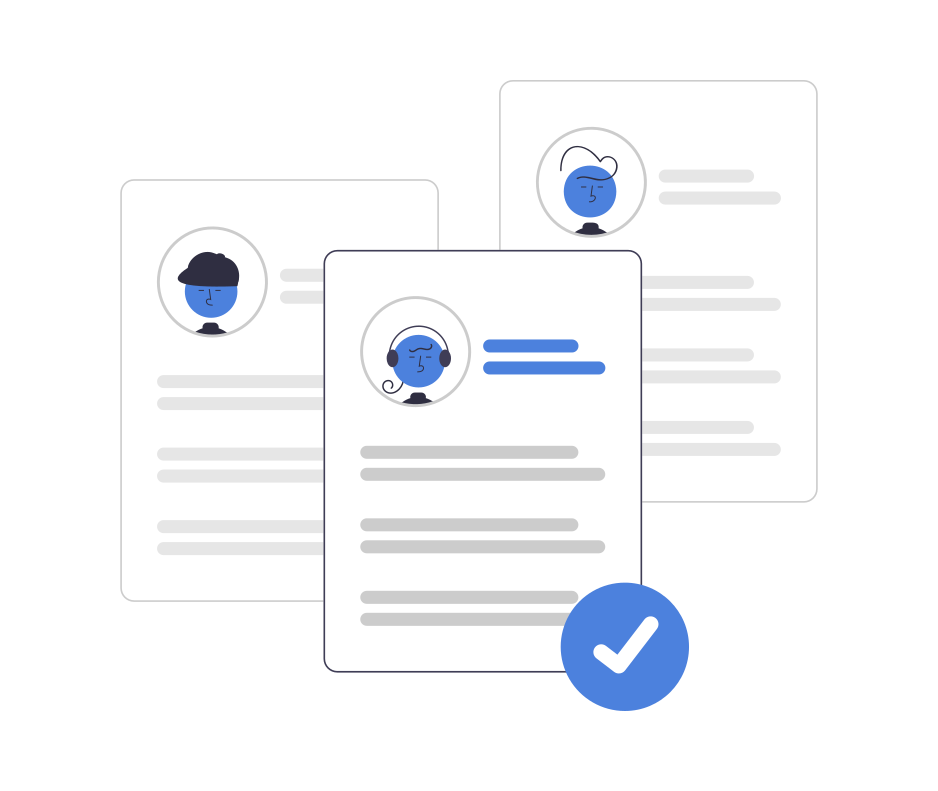
The role of technical staff in business, such as web developers and software engineers, is quickly growing. They create, design, manage and maintain websites, apps, and online systems. These professionals also help come up with a cohesive and user-friendly process for company teams and clients.
These are just some of the many functions and roles that developers perform. It’s getting harder to hire them because of the demand for their skills.
While sourcing developers and software engineer applicants plays a major role in the growth of the company, knowing how to onboard a new developer plays a big factor in transitioning them to be an effective part of the team.
In fact, a recent survey we conducted shows that 84% of developers consider the onboarding process as crucial to their future success in the role.
With this in mind, let’s take a look at our best practices for onboarding software engineers.
7 Tips on How to Onboard New Developers
Great onboarding improves new hire productivity by 62% and retention by 50%. So to hire and keep great technical teams, you need to improve your onboarding systems. Here are 7 tips on how to onboard new developers and engineers effectively.
1. Start with proper orientation
New developers should also be able to access important systems, processes and company knowledge. You have to connect them to the right people they will collaborate with and possibly implement pair programming.
It could take time for your new members to get acclimated to your team. Provide regular reviews for a feedback loop — listen to them and support them.
2. Introduce your software development process
The earlier your new developer gets familiar with your company’s codebase, systems, and processes, the better. One of the first things you should do is let them push an actual piece of code within the first two weeks since being hired.
This task should be significant enough to your project, which is a good way to give your developer a look into the codebase and your company processes in pushing out a code. At the same time, you have to place safeguards to your code as well in case something goes wrong.
3. Employ pair programming
Set your new developer to work with an experienced developer in the team. Of course, the entire team should help with the new member’s transition and be ready to answer their questions. But it’s essential to have one person assigned as the new employee’s single point of contact to get them up to speed.
4. Explain the company’s mission and vision
As you onboard a new developer, it’s a good practice to clarify the mission and give them a compelling vision of the company. It does not need to be emotional or theatrical; it just needs to be clear and easy to understand.
Including this in the software developer onboarding process would not just inspire ownership in the developer. It will also increase the chances of the developer staying a long time. That’s because a sense of mission gives them a compelling reason to do what they do. It’s no longer just about getting the job done or getting paid to do it. It’s about helping realize a vision that affects people’s lives.
Onboarding a new developer while failing in communicating why the company exists would be a missed opportunity. Ensure that developers also understand how their work contributes to the fulfilment of the company’s goals and aspirations.
5. Use a learning management system for training and orientation
Most orientations happen as pre-scheduled meetings, either online or offline. But the problem with this approach is people forget what they talked about in the onboarding meeting. Add to that is how much time it takes away from an HR manager or director. It’s much more effective to pre-record onboardings and put them in a learning management system or LMS.
A learning management system allows a smooth tracking of a person’s onboarding progress. It helps in monitoring their goals and provides a way for them to review them again in the future. There are various functions of LMS software that could benefit the company as they onboard a new developer. One of them is a seamless process of training and orientation.
6. Have a get-to-know event with your new staff
Relationships will always be part of human life. Whether it is a developer’s personal or professional life, how he relates with people would affect his career. As you onboard a new developer, make sure that the new hire would feel more comfortable with the company. Introduce him or her to the other staff members. It may not be considered as a full-on developer onboarding but it is definitely one of the best practices when hiring engineers.
Orientations give an impression to the new staff, and organic events reinforce those positive experiences by building healthy relationships. Inevitably, web developers deal with a lot of stress and pressure. They deal with voluminous data analytics and encoding. Having a few friends at work would help them handle the stress and pressures.
7. Allow enough time for onboarding
Our survey suggests that the ideal time to onboard a software engineer is between 1 and 3 months. This gives the opportunity to familiarize with the existing codebase and gain access to relevant tools and people.
Smaller companies and teams may be okay with a shorter onboarding period of up to 4 weeks, while complex and senior roles may require 4-6 months as per our survey data below.

Mistakes to avoid in your onboarding process
We also asked our survey respondents about the things companies usually get wrong in onboarding. Here are the top 3 mistakes to avoid:
- Not enough time to get familiar with the codebase (60.4% of respondents)
- Bad documentation (56.6%)
- Difficult to access relevant tools and people (54.7%)
Getting these right is crucial for a good onboarding experience.

Conclusion
Finding and hiring the right people for the job is important to the growth and development of the company. But without adapting the best practices for onboarding engineers, it would be difficult to keep competent people in the company. While hiring brings new energy into the company, an effective process on how to onboard a new developer helps in keeping that energy running in the company.
Further reading:
